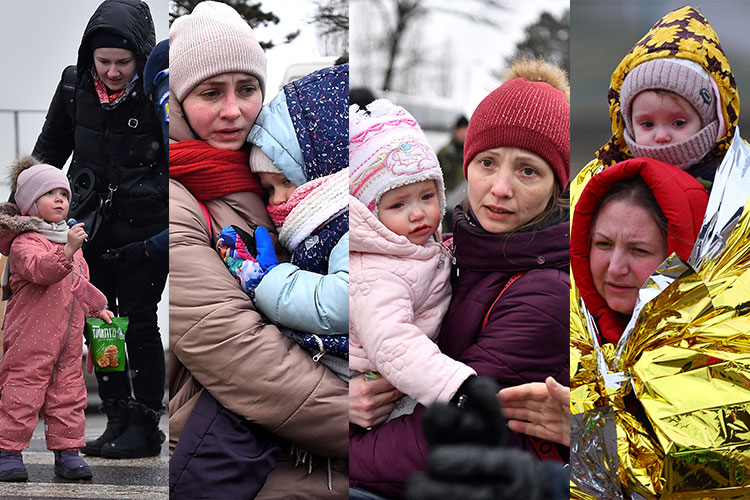Undocumented Afghan refugees in a spot

Afghan refugees climb a truck as they prepare to depart for Afghanistan, at a holding center in Landi Kotal, Pakistan. AFP
The first lot came with the Soviet Union invasion at the end of the 1970s. And the number of refugees grew with the internecine fighting between different militant groups in the early 1990s after the Soviet withdrawal in 1989. When the Taliban took over in 1996 the country was suffering from economic chaos. And things did not improve when the Taliban government collapsed at the end of 2001, and it stayed that way for the next two decades during the American-supported Kabul governments, and the return of Taliban in 2021.
The ostensible reason given by the Pakistan government was that a section of the refugees, most of them without documents, were causing terror attacks. There is also the fact that Pakistan is going through an acute economic crisis, and looking to the International Monetary Fund (IMF) bailout package. The Afghan refugees in Pakistan have become undeclared Pakistan residents. Many of them were born in Pakistan, got married, some of them to Pakistan citizens, and their children have grown up in Pakistan. Afghanistan is a distant memory for many of them. The Pakistan government gave the refugees without documents to leave the country voluntarily. The announcement was made on October 4 and given time till October 31. More than 100,000 had left Pakistan for Afghanistan in this period. The federal government in Islamabad, and thee provincial governments in Sindh, Khyber Pakhtunkhwa, Punjab and Balochistan said that those who fail to leave would be deported, after placing them in holding areas. It is estimated that there are more than 500,000 undocumented Afghans in Karachi, the capital city of Sindh province, and 300,000 in Khyber Pakhtunkhwa. Many of the Afghans living in Pakistan, with and without documents, have also begun to feel unsafe because of what they call local police harassment, how the young men are arrested on the least suspicion.
Many of them want to leave Pakistan because they feel harassment is getting to be intolerable. Pakistani officials promise to handle the transition as smoothly as possible but the huge number of people involved would certainly raise problems. The Pakistan government said that Afghan Ismailis who want to migrate to Canada would be allowed to do so. The Afghan refugees know that they are returning to an Afghanistan which has been ravaged by civil war, and which is now under the puritanical regime of the Taliban, where education and employment for women is denied. Most countries do not recognise the Taliban government, and there is no international aid flowing into the country. The refugees know that Afghanistan is a country of restrictions, internal and external, and there is no hope of economic opportunity.
The presence of Afghan refugees in Pakistan for decades has been a double-edged sword for Pakistan. International humanitarian aid flowed for the refugees, and the United States willingly poured in economic and military aid, during the Soviet occupation of Afghanistan, and after the September 11, 2001 terrorist attacks in the United States because Pakistan was seen as a crucial base for the war against terrorism.
The United States has turned quite cold towards Pakistan because it feels that Pakistan is not a crucial ally that it was during the Cold War, fighting communism and the Soviet Union. The Americans are wooing neighbour India for its huge market and also as a possible counter to China. Meanwhile, Pakistan and China have remained close allies. It is these geopolitical twists and turns that complicate the story of Afghan refugees in Pakistan







